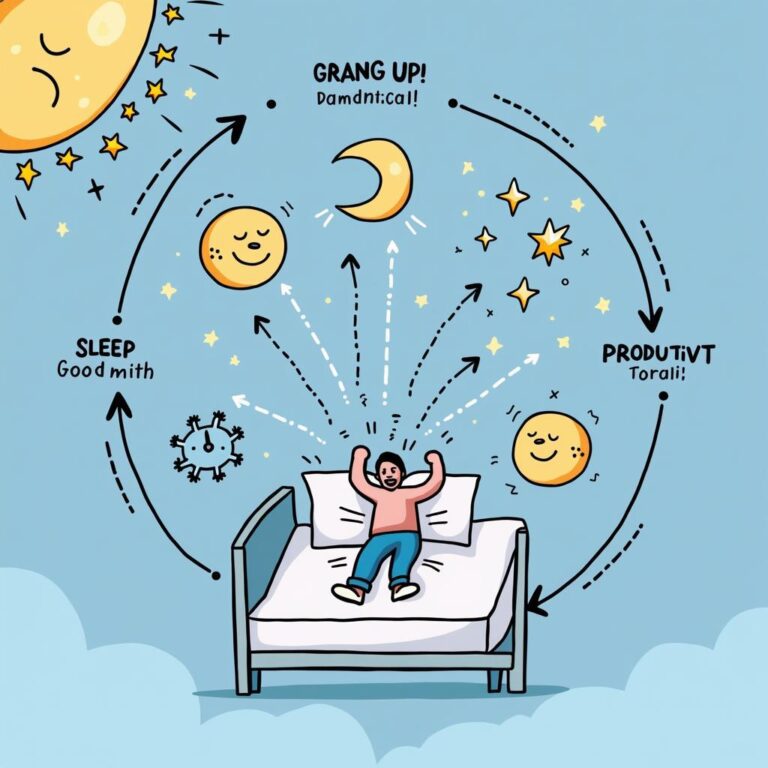Quality sleep is essential for optimal performance in daily life, whether it’s at work, at school, or in athletic pursuits. Interestingly, the concept of sleep cycles has gained significant attention, emphasizing the importance of adjusting them to improve overall performance. In this article, we’ll explore how to adjust your sleep cycles for better performance, the science behind sleep cycles, and practical tips for achieving a more restorative sleep.
Understanding Sleep Cycles
Before diving into adjustments, it is crucial to understand what sleep cycles are. Sleep is not a uniform experience; rather, it consists of several sleep stages, each with distinct brain activity patterns. A typical sleep cycle lasts about 90 minutes and includes the following stages:
- Stage 1 (N1): The lightest stage of sleep, which often serves as a transition from wakefulness. It lasts for just a few minutes.
- Stage 2 (N2): A period of deeper sleep where heart rate slows and body temperature decreases. This stage lasts for about 20 minutes.
- Stage 3 (N3): Deep sleep, crucial for physical recovery and growth. It can last up to 40 minutes.
- Rapid Eye Movement (REM): The stage associated with vivid dreams and important for memory consolidation. REM sleep begins about 90 minutes after falling asleep and recurs several times throughout the night.
Throughout a typical night, a person generally experiences multiple cycles of these stages, cycling through them five to six times. Adjusting your sleep cycles can help maximize the benefits of each stage and improve performance in various aspects of life.
The Impact of Sleep on Performance
Inadequate or poor-quality sleep can significantly impact cognitive functions, emotional well-being, and physical performance. Here are a few areas where sleep impacts performance:
- Cognitive Function: Decision-making, problem-solving, and creativity can deteriorate without sufficient quality sleep.
- Emotional Regulation: Sleep loss can increase irritability and stress, leading to poor interpersonal relationships and decreased productivity.
- Physical Performance: Athletes often see a decline in strength, endurance, and reaction time when sleep is compromised.
With an understanding of the impact of sleep on performance, it’s clear that optimizing your sleep cycles can lead to substantial improvements.
Strategies to Adjust Your Sleep Cycles
Adjusting sleep cycles requires awareness and intentional changes in habits. Here are some effective strategies:
1. Set a Consistent Sleep Schedule
Establishing a routine involves going to bed and waking up at the same time every day, including weekends. Consistency helps your body establish a natural rhythm and improves sleep quality. To develop a schedule:
- Choose a bedtime that allows for 7-9 hours of sleep.
- Set an alarm for the same time each morning.
- Limit naps to 20-30 minutes if needed.
2. Create a Relaxing Bedtime Routine
Winding down before sleep can signal your body that it’s time to relax. Here are some calming activities you can include in your routine:
- Reading a book
- Meditation or deep breathing exercises
- Gentle stretching or yoga
A relaxing bedtime routine can help transition you into a more restful state, making it easier to fall and stay asleep.
3. Optimizing Your Sleep Environment
The environment in which you sleep can significantly affect sleep quality. To optimize your sleep environment:
- Keep your bedroom dark, quiet, and cool.
- Use blackout curtains to block light.
- Consider white noise machines or earplugs to minimize disruptive sounds.
- Invest in a comfortable mattress and pillows.
4. Limit Sleep Disruptors
Avoiding substances that disrupt sleep is key to adjusting your sleep cycles. Consider the following:
- Limit caffeine intake in the afternoon and evening.
- Avoid alcohol close to bedtime, as it can affect sleep quality.
- Minimize exposure to screens (phones, computers, TVs) at least an hour before bed due to blue light’s impact on melatonin production.
5. Track Your Sleep Patterns
Using sleep tracking applications or devices can offer insights into your sleeping habits. By recording and reviewing your sleep patterns, you can identify factors that influence your sleep cycles. Understanding your sleep data can help guide adjustments for your optimal performance.
Adapting for Life Changes
Life circumstances, such as travel, shift work, or new stressors, can disrupt sleep. Here are tips for dealing with these changes:
- Travel: Gradually adjust your sleep schedule a few days before travel to minimize jet lag.
- Shift Work: Create a darkening environment for daytime sleep, and try to stick to a consistent sleep schedule as much as possible.
- Stress Management: Engage in mindfulness or relaxation techniques to manage stress effectively, improving your ability to sleep.
Conclusion
Adjusting your sleep cycles can significantly impact your overall performance, well-being, and quality of life. By establishing a consistent sleep schedule, creating a relaxing bedtime routine, optimizing your sleep environment, and eliminating disruptors, you can enhance the quality of your sleep. Invest in tracking your sleep patterns and adapt to life changes to stay ahead in optimizing your performance. Sleep is not merely a time for rest; it’s a vital component of a successful and productive life.







